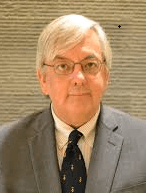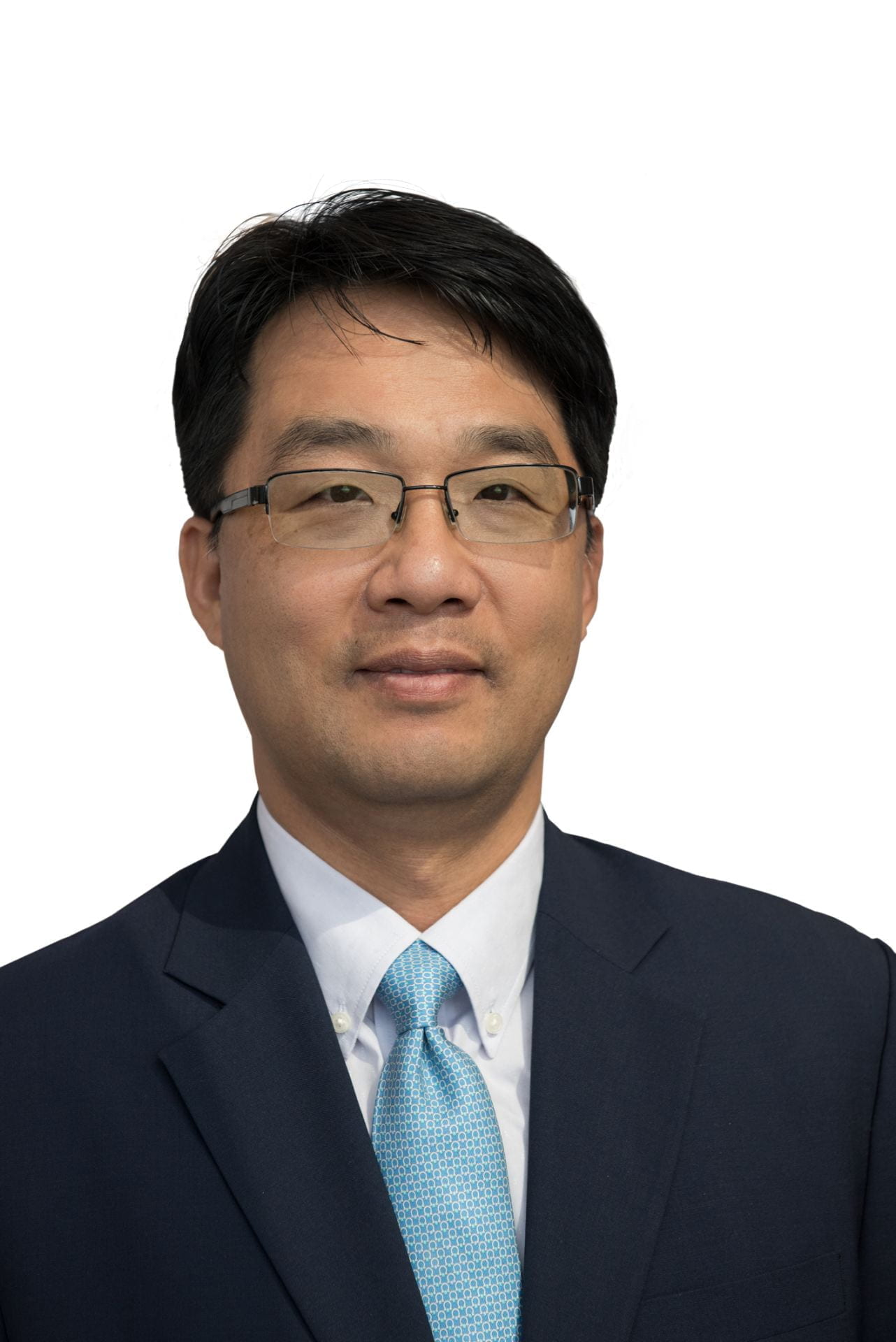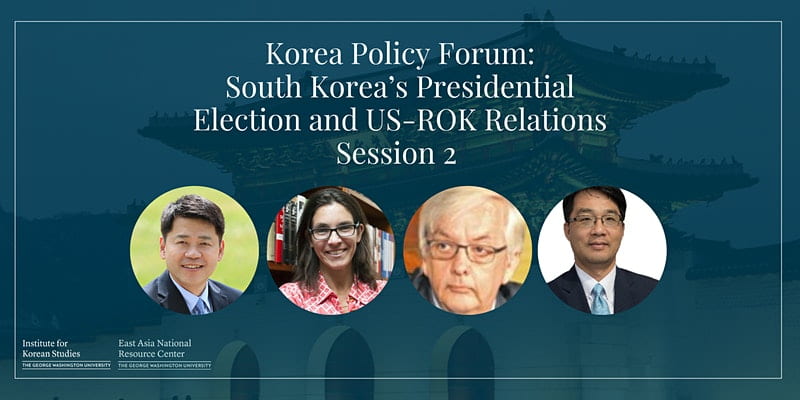Korea Policy Forum
South Korea’s Presidential Election & US-ROK Relations
Tuesday, December 14, 2021
9:00 AM – 10:00 AM EST
11:00 PM – 12:00 AM KST
Zoom Event
South Koreans will soon go to the polls to elect their next president on March 9, 2022. The two leading candidates are former Gyeonggi Province Governor Lee Jae-myung from the ruling Democratic Party and former Prosecutor General Yoon Seok-youl from the opposition People Power Party. As these two candidates hold divergent views on foreign policy, the results of this consequential election will surely have a major impact on US-ROK relations.
The GW Institute for Korean Studies has invited a prominent supporter of each major candidate to share their views on the race and their preferred candidate’s foreign policy goals. Joon Hyung Kim (former Chancellor of the Korea National Diplomatic Academy) and Beomchul Shin (Director of Diplomacy and Security Center at Korea Research Institute for National Strategy) will be presenting on the foreign policy of Lee Jae-myung and Yoon Seok-youl, respectively. Their presentations will be followed by comments from two expert discussants, Celeste Arrington (Professor of Political Science and International Affairs at GW) and Mark Tokola (Vice President of the Korea Economic Institute of America). We invite you to join us for an engaging discussion on the upcoming election and its implications for the future of US-ROK relations.
This event is on the record and open to the public.
Speaker

Joon Hyung Kim is the former Chancellor of the Korea National Diplomatic Academy and currently a Professor of the International Studies Department, Handong Global University. His areas of specialization and interests are theories of international relations, Northeast Asian relations including US-China, US-ROK, and North-South Korean relations. He was also invited as a Fulbright Visiting Scholar to George Mason University’s Department of Public and International Affairs, and taught several courses including US-Korea Relations and East Asian International Politics. Since 2011, Dr. Kim has been involved in the Korea Peace Forum, a renowned network-based think-tank specialized in peace and unification. In 2016 and 2017, he was a member of Moon Jae In’s presidential election camp, where he advised on and formulated major foreign policies. After Moon was elected, he joined the Government Transition Committee, and became a member of the Presidential Commission on Policy Planning (Security and Foreign Policy Sub-committee). In addition to that, he belonged to advisory committees to the Ministry of Foreign Affairs, the Ministry of Defense, the Ministry of Unification, and the National Security Council. Dr. Kim earned his Bachelor’s Degree at Yonsei University (1986), and M.A. and Ph.D. at George Washington University.
Discussants

Alexis Dudden is Professor of History at the University of Connecticut, where she teaches modern Japanese, Korean, and international history. She publishes regularly in print and online media and is completing a book project tentatively called, The Opening and Closing of Japan, 1850-2020. Dudden received her BA from Columbia University in 1991 and her PhD in history from the University of Chicago in 1998. Since1985, she has lived and studied for extended periods of time in Japan and South Korea and is currently a fellow at the Woodrow Wilson Center in Washington, DC.

Mark Tokola is Vice President of the Korea Economic Institute of America in Washington, DC. He retired as a U.S. Senior Foreign Service Officer with the rank of Minister-Counselor in September 2014. His last posting was as the Minister Counselor for Political Affairs at US Embassy in London. Previously he had served as Deputy Chief of Mission at the American Embassies in Seoul, Republic of Korea; Ulaanbaatar, Mongolia; and, Reykjavik, Iceland. Among his other postings were two tours at the US Mission to the European Union in Brussels, Minister-Counselor for Economic Affairs at Embassy London, and Economic Counselor at the US Embassy in The Hague. He also served as Director of the Iraq Transition Assistance Office (ITAO) in Baghdad from 2007-2008. Mr. Tokola received the State Department’s Superior Honor Award for his work on implementing the Dayton Peace Accords while serving as Political Counselor in Sarajevo, Bosnia-Herzegovina from 1997-1999. He holds a BA in International Relations from Pomona College in Claremont, California, and an LL.M. in European Community Law from the University of Edinburgh, Scotland. Mr. Tokola serves on the Board of Governors of DACOR: An Organization of Foreign Affairs Professionals, and on the Board of Trustees of the Bacon House Foundation.
Moderator

Yonho Kim is an Associate Research Professor of Practice and the Associate Director of GW Institute for Korean Studies. He specializes in North Korea’s mobile telecommunications and U.S. policy towards North Korea. Kim is the author of North Korean Phone Money: Airtime Transfers as a Precursor to Mobile Payment System (2020), North Korea’s Mobile Telecommunications and Private Transportation Services in the Kim Jong-un Era (2019) and Cell Phones in North Korea: Has North Korea Entered the Telecommunications Revolution? (2014). His research findings were covered by various media outlets, including Wall Street Journal, The Atlantic, Yonhap News, and Libération. Prior to joining GWIKS, he extensively interacted with the Washington policy circle on the Korean peninsula as Senior Researcher of the U.S.-Korea Institute at Johns Hopkins University School of Advanced International Studies, Senior Reporter for Voice of America’s Korean Service, and Assistant Director of the Atlantic Council’s Program on Korea in Transition. He holds a B.A. and M.A. in International Relations from Seoul National University, and an M.A. in International Relations and International Economics from Johns Hopkins University School of Advanced International Studies.


